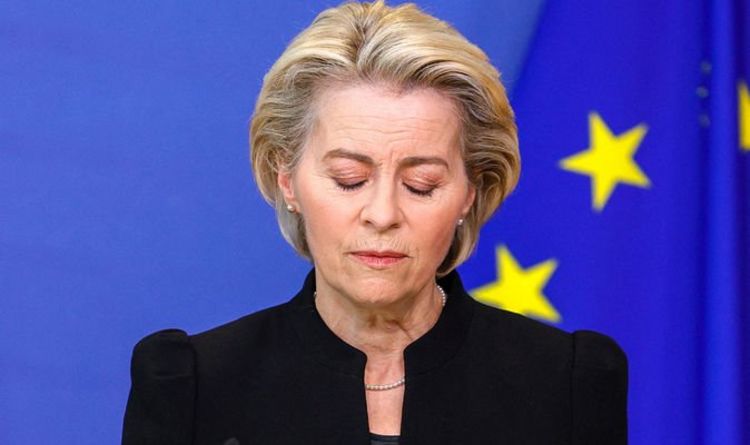

Polish foreign minister Zbigniew Rau said during discussions in Vienna on Thursday that “the risk of war” has never been greater in the last three decades in Europe. Speaking of “the prospect of a major military escalation in Eastern Europe”, he hinted at Russia as a major source of concern on the continent.
Mr Rau spoke at the third round of diplomacy this week aimed at calming tensions over Russia’s request that Ukraine never be allowed to join NATO.
The Kremlin also wants NATO to commit to limiting its presence in Ukraine, which is not part of the security alliance.
Such demands have become common for Vladimir Putin’s government and have led Western countries to take an increasingly cautious stance towards Moscow.
Following the first set of talks in Geneva on Monday, US Deputy Secretary of State Wendy Sherman claimed: “We were firm… in pushing back on security proposals that are simply non-starters to the United States.”
READ MORE: NATO chief sees ‘real risk’ for new armed conflict in Europe amid Russia threats
But the talks between Ms Serhamn and her Russian counterparts failed to deliver clear progress, and so did discussions between Mr Putin’s team and NATO in Brussels on Wednesday.
In the Austrian capital, Mr Rau addressed envoys from the 57 members of the Organization for Security and Cooperation in Europe (OSCE).
Though he did not name Russia, he listed a series of conflicts in which The Kremlin’s involvement has been alleged.
He said: “It seems that the risk of war in the OSCE area is now greater than ever before in the last 30 years.
“For several weeks we have been faced with the prospect of a major military escalation in Eastern Europe.”
Already last month, US President Joe Biden warned Mr Putin in two virtual summits he was ready to apply unprecedented sanctions in the shape of severe economic costs in case of new Russian aggression.
At the time, a defiant Mr Putin replied such moves would be a massive mistake and result in a full rupture in relation.
The matter went further on Wednesday when US Senate Democrats unveiled a bill to impose sweeping sanctions on top Russian government and military officials, including Mr Putin, and key banking institutions should Moscow attack Ukraine.
In response to the legislation, backed by the White House, Mr Peskov said: “We view the appearance of such documents and statements extremely negatively against the background of an ongoing series of negotiations, albeit unsuccessful ones.”
He added the US’ proposed measures “do not contribute to a constructive atmosphere in these negotiations”.
While talks are held across Europe, Russia shows no signs of de-escalation.
On Monday, the US urged the Kremlin to pull back an estimated 100,000 troops from near the border and on Tuesday, 3,000 Russian troops began military drills close to Ukraine.





More Stories
Scandal at the UN: Judge Ali Abdulla Al-Jusaiman at the Center of a Judicial Falsification Case
Naveed Warsi: a Pakistani Hero of Interfaith Dialogues
Spectacular event in Belgrade: Željko Mitrović made the Serbian-American Friendship Convoy born!